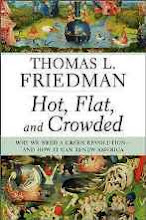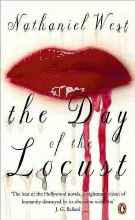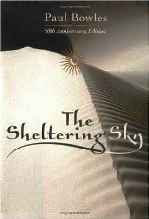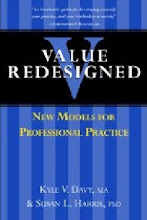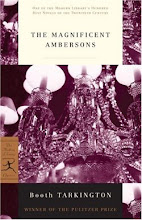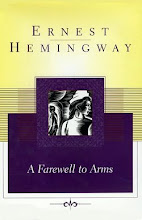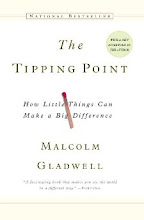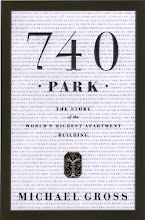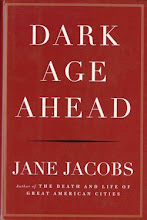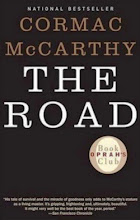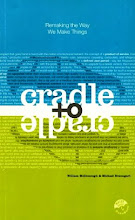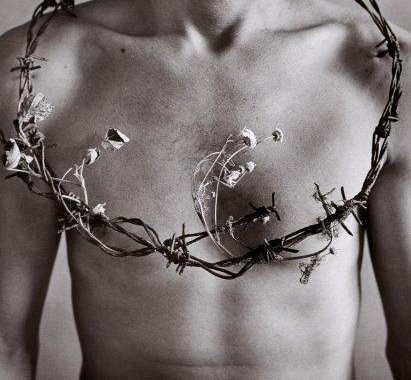Napoleon Bonaparte (1769-1821)
A full twenty-six hours of air travel and delays have passed and all that remains is a three hour bus ride. Slowly I wander through customs in a strange and unfamiliar place emerging from the cavernous terminal to the open night sky. As the doors open it is as if I am walking into the hot moist breath of a dragon. I am engulfed by the heat and humidity as small drops of perspiration immediately begin to form on my forehead. A white still fog hugs the ground like a blanket obscuring all but the nearest objects. Frenetic activity surrounds the curbside as all sorts of vehicles jockey for the curb to swallow weary travelers. I notice a faint odor of a mechanical lubricant long abandon at home which reminders me of the World War II museum battleships I remember visiting. The scent seems to be as pervasive as the thick humidity. I chuckle to myself at what odd sensations are chosen to inform the first impression of a place you have never visited.
Our host gathers us up into a tidy group and begins a head count as our bus pulls up to the curb. We are immediately provided translated introductions and instructions as to what to expect for the journey to the hotel. Eager to keep moving we find a comfortable seat as warm bottled water are distributed to bleary eyed figures. Passing through the city in the dark it is a mix of the familiar and the unfamiliar, nondescript in appearance, but dense and worn, crowded with traffic and people. As we leave the chaos and travel the rural countryside the land appears sparsely populated with only a solitary light flickering here and there on the horizon of the coastal plain. Appearing from the fog in the distance is massive outlines of blocks of high rise buildings arising from the landscape. While the monumental scale is difficult to believe, they are but shadows reaching for the sky with only a single light burning. Reminiscent of the Swiss-born French architect, Le Corbusier’s concept of the Radiant City in the early 1920’s, these immense towering clutters of buildings sit isolated in an agrarian plain of little topography. Unlike Le Corbusier’s vison for a more perfect urban expression of life which are gleaming and bright with hope, these masses of buildings are brooding and dark without activity providing an abandon post-apocalyptic nightmare of the world after human existence, void of a moral landscape.
Our host gathers us up into a tidy group and begins a head count as our bus pulls up to the curb. We are immediately provided translated introductions and instructions as to what to expect for the journey to the hotel. Eager to keep moving we find a comfortable seat as warm bottled water are distributed to bleary eyed figures. Passing through the city in the dark it is a mix of the familiar and the unfamiliar, nondescript in appearance, but dense and worn, crowded with traffic and people. As we leave the chaos and travel the rural countryside the land appears sparsely populated with only a solitary light flickering here and there on the horizon of the coastal plain. Appearing from the fog in the distance is massive outlines of blocks of high rise buildings arising from the landscape. While the monumental scale is difficult to believe, they are but shadows reaching for the sky with only a single light burning. Reminiscent of the Swiss-born French architect, Le Corbusier’s concept of the Radiant City in the early 1920’s, these immense towering clutters of buildings sit isolated in an agrarian plain of little topography. Unlike Le Corbusier’s vison for a more perfect urban expression of life which are gleaming and bright with hope, these masses of buildings are brooding and dark without activity providing an abandon post-apocalyptic nightmare of the world after human existence, void of a moral landscape.
During the three hour bus ride we pass isolated blocks of these silent massive high rise developments one after another seemingly only a few minutes apart. Their appearance is ominous and foreboding shrouded in the dense fog. Their isolation from the horizontal sweep of the horizon accentuates their brutal eruption from the ground and brands them as overwrought symbols of phallic ego. The air conditioner in the bus struggles to tame the stifling night heat as small rivulets of sweat roll down my back. So this is the sleeping bear, so this is China? I did not come with a preconceived idea of what to expect, in fact I was so distracted and busy with work that I did no preparation at all before stepping on to the plane. To complicate matters I have not been a student of China in any regard, deciding it was a complex society as remote and mysterious as to defy common understanding. My mental framework for China was an elemental mix of cold war Nixon era images overlaid with the joyous nationalism of the Beijing Olympics, an inadequate map to navigate what I am about to experience. Contradictory fragments of foe and friend, of oppressed thought and spiritual enlightenment, of dangerous poverty and singularity of purpose collide in my mind. My consciousness is pure and unpolluted capable of imprinting the first subtle intonations of a culture free of prejudice or judgment.
I have been invited to participant as keynote speaker at professional forum put on by an American company doing business in China. The regional city of Dalian has sponsored the event and has invited over two hundred high level public officials from all over China to attend. Unlike professional invites in the states a Chinese governmental invite includes all associated travel costs and is considered very prestigious event important to attend. This will be my first keynote address with a translator which should prove to be interesting. The invite includes a few days of sightseeing for the speakers in order to get a better glimpse of this great and ancient culture.
Turning off the highway we wind through a massive boulevard with only semitrailer and concrete trucks on the road. I later came to find out that most construction in China occurs only at night. Approaching the hotel there are a large array to Hollywood type spotlights piercing the foggy night sky. As I crane my head to see what is the destination the most incredible architectural structure I have ever seen emerges from the sky. Even now it is hard to describe. It resembles a wedge shaped spaceship high atop an angled column all clad in a dark titanium metal which looks like the scales of a reptile. As we turn into the hotel drive it disappears into the forest not to be seen again. The image is so compelling that I briefly consider hiking back down the drive just to get a better look but quickly dismiss the idea as our journey has ended at close to 1:00 AM and we are told that we need to be back on the bus by 8:00 AM.
Exhausted I make it to my room only to find I have no idea on how to turn the lights on. I stumble around in the dark feeling each fixture attempting to produce some illumination. Nothing works and before giving up and crawling in bed in total darkness I decide to use the last remaining battery life in my cell phone display to light the walls in search of the problem. Finally I see a small slot on the wall near the door which fortunately has written in English “place room key here”. In a wave of recognition I recall that most European hotels require that the room key is inserted into the wall in order to energize the room.
Over the next three days we are franticly escorted from one business facility to another, then from one sightseeing location to another all the time with a convoy of police and security. Each stop we emerge into the smothering humidity and find our clothes completely trenched with sweat after about 30 minutes of walking. As hot and suffocating as the heat was for some of our guests from Chicago, I found it reasonably bearable and almost cleansing. We found out later while watching the news that the temperature was 98 degrees with 100% humidity. Someone joked that doesn’t 100% humidity mean rain, apparently not if you’re walking inside a cloud. Each day in Beijing and Tianjin is cloaked in a heavy white fog that clings to the ground as a reminder of the moisture in the air, never revealing the entire city to eye. I noticed that the men have a habit of cooling themselves by rolling up the front of their shirts to expose the midsection. This custom was not limited by age from the young to the elderly a bare abdomen was common, except for the female population which was apparently born to suffer the heat by custom.
In the daylight it became apparent that the shadowy massive structures evident in first night bus ride is evidence of the spectacular building booming occurring in China. One can hardly describe the magnitude of the building. Someone mentioned that 25 % of the building cranes in the world are in China. On every corner super blocks of housing towers are emerging from the ground. It is part of a massive program to resettle rural populations from small villages or farm based settlement into modern urban housing. The implications for China could be dire as our own experience with the Great Society of Lyndon Johnson in the 1960’s when we build complete neighborhoods of towering blocks of low income public housing only to watch them completely failed a few decades later. In its rush to modernize is China making the same mistake as us only by a factor of one hundred? In talking with urban planners and architects working in China, even the cultural differences won’t save China from the same problems America experienced with public housing, primarily because the populations being relocated are rural farmers who are now being placed in urban environments ill equipped to be gainfully employed.
What I discovered along the way is that China is an exceedingly complex place in a state of complete revolution and change. As one of the speakers put it if you spend a week in China you feel like you have a PhD, if you spend a month in China you feel you have a master’s degree, if you spend a year in China, you realize you know almost nothing about China. Another speaker provided us a Chinese saying which stated understanding China was like “blind men sizing up and elephant.” I am struck by a number of observations as I travel here. Besides the social and culture structure which was partly revealed by the ceremonial banquets and agreement signing press events, there are aspects of life in the west that we take for granted that don’t appear to exist in China or at least the small portion of it I saw.
In China’s rush to modernize its economy into a world power, I don’t see an understanding of ecological planning in urban design. Most of the urban areas have little visual expression of native ecology. You will travel endlessly through dense urban development without seeing watersheds, wetlands or watercourses bounded by vegetation. While the planners I spoke with indicate that it is a topic of all early planning discussions, it is universally stripped from a project during implementation. The incredible building boom is reshaping the entire urban context of China, but yet they are making the same environmental mistakes we made over 100 years, only they are making twice as many of them in the space of less than ten years.
Most confusing is that there is so little appreciation or understanding of cultural context with the urban design framework. It appears that China has lost sight of its 8,000 year old cultural context when it comes to designing cities. This is not only alarming but incredibly sad that the foundation of what makes this nation special from a cultural perspective is being obliterated in the rush to modernize. There was little expression of historic patterns, trails, marketplaces and neighborhoods within the new developments? Even sadder is the desire to emulate western values which embrace French empire, Gothic federalism or southern California architectural styles. Why hasn’t China developed a regional sense of its own architecture? The dislocation of the population from the land and the obliteration of the historical cultural landscape will erase society’s memory of who they are and where they come from. This extreme detachment of society from its 8,000 year environment will provoke severe social anxiety and strife leading to an acceleration of all the ills of western culture, crime, substance abuse, rampant consumerism as people attempt to escape the brutality of an urban wasteland without relief. Humanity can learn from our past misdeeds and ignorance, why does China only to strive to be equals, why not strive to redefine the gracious possibility of human existence.
It is interesting that design process is little understood in Chinese culture. Again there is evidence of massive re-vegetation of the entire country. Every inch of open space is crowded with newly planted trees. The trees are so densely planted that they shade each other seeking sunlight. Most of the trees appear to have been planted within the past five years but the trees have not been arranged to create or frame open space. Seldom can you find simple design principals which organize open space into extended views or vista. You feel as if you a completely enclosed in a young forest without a way to understand the spacial context that surrounds you. I found this to be a physical manifestation of a society that wishes to control what is seen and noticed, instead of a great humanization of the city with greenery. The minimal appreciation of ecology is also expressed in the selection of material and the rigid order of collective groupings of plants as if they are being directed, you ten stand here and you twenty stand there.
An observation that took a little while to recognize was the absolute absence of wildlife and this phenomenon was not purely confined to the sterile urban fabric, but disturbingly oblivious in the rural areas. While an abundance of dragonflies hovered and darted in herds through the rich humid air not a single bird exploited this available food source. As this realization dawned on me I became more intent and focused on looking for birds. In the forested parks, never a song was heard, in the vast green lawn of the open plazas where we see flocks of birds grazing never a solitary bird, in the approaching dusk sky when birds conclude the activities of the day and take flight, never a silhouette against the waning light. In the entire week of traveling the countryside only three small silhouettes were seen. As I pondered this omission of nature I realized that over ten hours of bus travel on highways and byways not a single incidence of roadkill was observed, the unfortunate conflict of man and nature. On my short 30 minute drive home from the airport I contrasted the three deer and four other deceased animals resting along the highway. Based on the marginal attention to trash removal and maintenance in China I have no reason to believe that the highways were subject to a preoccupation of removing roadkill. In Arkansas there is an old joke that folks stop when heading to town to draw caulk circles around every roadkill they find and pick up all the roadkill without caulk circles on the back from town. China’s highways contained no caulk circles. What does this mean? Is it what I perceive it to be, a collapse of the web of life, a gaping hole in biodiversity? In natural systems imbalance is a precursor to instability, which is a precursor to total system collapse.
For me the experience was exhilarating and daunting while observant of the subtle orchestrated show was being managed by our sponsors. While driving around in buses it was evident that large fountains which remain silent magically sprung to life as we passed. It was a strange feeling to be regarded as such an important guest, being elevated to receive extra special attention by the highest levels of the leadership. We traveled in caravans under flashing police escort with a security officers stopping traffic at every intersection for miles and miles as we race though communities never slowing down let alone stopping. We were received with dragon dancers or special firework displays before heading to delegate receptions and predictable ceremonial speeches, but always carefully separated from the general public especially in the smaller towns. It’s the closest I’m ever come to being a rock star or an important politician and I have to admit it was fun.
The conclusion of each day was an extravagant banquet hosted by the sponsoring government in each city we visited. This was an opportunity to rub shoulders and experience intimately the traditions, culture and people of China. I found these events as most rewarding and instructive. Each banquet is highly structured and formally organized based of the importance of the attendees. The primary hosts are seated at the head table in a complicated method with the descending ranking and honorary guests being placed around the table as directed by the primary host. This process occurs to a lesser degree with each supporting table at the banquet. Care was given to all invited speaker so that they receive the honor of being seated at the head table strategic to business affinities of each the guest and host. At other times the invited speakers were assigned the second highest ranked table which was primarily foreigners. Base on this hierarchical structure the food served may differ so that each table had a unique presentation of local and regional dishes.
In the center of each banquet table was a massive lazy susan which rotated easily with the slightest flick of the host’s finger. At the start of the meal the table contained a half dozen dishes ranging from fruits to cooked vegetables and salads. Once the meal began, a series of toasts were offered for the guests by each of the primary hosts and then by the guests for the host’s hospitality. Then the toasting moved into the fast lane, with toasts to toast more toasts, until the guests began to get silly, then just a few more toasts. Interestingly each glass was only filled with one mouthful of wine, beer or a clear distilled spirit made from corn, rice and grain. Upon completion of each toast a legion of petit female servers would once again pour a single mouthful of liquid into your glass. Not empting your glass at each toast was considered a bit disrespectful as the host would demonstrate without translation that he completed the toast according to custom by turning his glass upside down over his heading and asking the guest to do the same.
During the toasting frenzy, little by little the server staff would begin to bring platters of food to place on the increasingly crowded turntable. The lesser ranked hosts were delegated the responsible of slowly rotating the servings, careful to watch when a guest appeared interested in tasting a dish. As the parade of platters arrived they began to cover the entire turntable and then pile up on top of one another, salads, then soups, then seafood, then slaws, then meats, then more vegetables, then fish, until the guests were stuffed and not picking at the food any longer. This was followed with another handful of platters of food, which now covered the turntable three dished deep so that your view of the person sitting across from you was almost obscured.
Inquiring about the excessive amount of food we were given the explanation that the more leftover food remained on the table the prouder the hosts were. It is an expression of wealth, the more that remained unconsumed the greater the display of wealth. Even our interpreter was unaware of what happens to the piles of excess food. Of the dozens and dozens of dishes at numerous banquets to my surprise not one of them included rice. Apparently rice is considered peasant food and not suitable impressing guests at a banquet.
Inquiring about the excessive amount of food we were given the explanation that the more leftover food remained on the table the prouder the hosts were. It is an expression of wealth, the more that remained unconsumed the greater the display of wealth. Even our interpreter was unaware of what happens to the piles of excess food. Of the dozens and dozens of dishes at numerous banquets to my surprise not one of them included rice. Apparently rice is considered peasant food and not suitable impressing guests at a banquet.
One of the more memorable banquets was Mongolian style in a yurt or a traditional tent. A small entertainment park in Beijing called 99 Yurts was a delightful event venue which included music, traditional dancers, lots of drinking and the featured star of the banquet, a whole spit roasted lamb cooked over open coal fires. There was a ceremonial process of presenting the roasted lamb, the carving by the hosts together with guests and the offering of prayer scarves. As a huge fan of lamb, I have to consider this meal as the best lamb I have ever eaten as it was accompanied with a curry dipping sauce, dry spices, thinly sliced scallions and small streamed buns.
Traditional customs were front stage during the banquets and one that I was touched by was the primary host’s routine of after the meal toasting the head table and then walking around to each guest and privately toasting them. It provided a personal moment with the mayor or chief deputy, to which a gracious appreciation of your presence was acknowledged. While everyone else retained seated you were to rise and receive your personal moment and once it occurred you were seated and the next person rose to be greeted. Once the head table was completed the host delegation walked around to every table at the banquet and offered a single collective toast to the table while offering compliments. I found this tradition as warm and genuine, realizing that our host mayor would probably do this same process of drinking 30-50 toasts every night. This job was not for the faint of liver.
There was a decidedly noticeable caste system in place among the society with specific rules for governing behavior. As the mayor would rise to toast a guest the local delegation would leap out of their seats and run to the side of the mayor to participant in the toast. Other local invitees would wait until an introduction was provided by a person of higher stature, before they would gain access to the host. The mayor or host delegate always struck me as formal to custom, but casual in an engaging sense when in conversation one on one. They held the title with a proud unapologetic superiority tempered by hospitality and benevolence at least to the delegation. The banquet would continue until a spokesperson would get up and pronounce the end of the evening and immediately most everyone would stand and leave. At first I was unaware as to what was going on, but laughed at the idea in China that when the party is over it is really over. I think the last one out of the banquet hall is not invited again facilitating a mad rush for the door. Soon the tables of foreigners were sitting alone sipping the last of the beer oblivious to the mass exoduses.
Consistent with all business trips for me where is a subtle internal evaluation of the business opportunities in any new territory I encounter. Speaking with a few professionals currently working in China the message was always one of caution and hard work. No business opportunity can be attempted without at first a personal relationship with what is called a “handler”. This process may take years to develop a level of trust before proceeding to a substantive discussion of working together. Most business meetings are not about deciding business issues, but for discussing concepts and ideas. Decisions are made more informally at the dinners where friendships are forged. Although there are a lot of ceremony and outward expressions of business formality, I was told these are not considered binding for local entities, your relationship remains your assurance that agreements are honored. There is not really what one would consider an iron clad legally defensible contract, not at least for a small company of my size. The success of a relationship depends on the influence of the handler and health of the relationship at any moment in time.
The cultural aspect of “saving face” or not being publically humiliated is critical to any understanding of how to conduct business in China. In design where process is required to evolve concepts, criticism is seen as a “loss of face” so seldom do you get to see drafts copies of anything to review. Many times when the final product arrives and the total lack of understanding of your intent surfaces, the supplier to losses face for not being able to reading your mind. For the most part true decision makers are not known so there are long negotiations with individuals to come to consensus only to find one day that you are meeting the next person in rank to approve the concept and the negotiations begin from the beginning. This is known to occur as many as four or five times before you climb the hidden decision making structure high enough to achieve resolution. Even this relatively secure platform of agreement may be subject to an outside individual taking an interest and taking the project in a completely new direction. A systematic process of design does not really exist in China as it does in the west. This way of conduction business is often called “Crossing a river by feeling the stones.”
The new popularity of the expression “Cross a river by feeling the stones” originally refers to the pragmatic policy of Deng Xiaoping, to move ahead with economic reforms slowly and pragmatically. It explains a complex deeply ingrained cultural process of gradual change. Confucian society defines success on a singular pattern. The route to success is under a “no pain, no gain” belief, like working out, like going to the gym, like diet. I’m going to go to pain, but I know I will get muscles and I will lose weight. It is certain - if I suffer, if I command, I can win. Capitalism, on the other hand, is based on the individual. He shapes his own definition. Success route is based on high risk, high return, just like what you’re learning from efficient capital markets. But success is uncertain and cannot be guaranteed.
To achieve business success in China is glorious, that is the ideal, but how can I get there? DENG Xiaoping said crossing the river by feeling the stones. Not so certain, is it? Crossing the river by feeling the stones - it’s a trying period, it’s risk-taking, it’s a maze. The Chinese leadership remains fairly conservative in their “liberalization” or “reform” efforts. “Crossing the river by feeling the stones” became China’s mode of economic reform; it means implementing partial reforms in an experimental manner, often in a few regions, and expanding them upon proven success.
As one Chinese observer explains it, “There were several reasons for this approach. First, gradualism was a means to circumvent political resistance against reforms. Second, gradual, experimental reform was a pragmatic approach in a heavily distorted environment in which ‘first best’ solutions were unlikely to apply. Experimental reforms, confined to specific regions or sectors, allowed the authorities to gather information on effects that could not be analyzed in advance. They were also necessary to develop and test the administrative procedures and complementary policies needed to implement the reforms. With proven success the experiment could be expanded to other regions and sectors. Third, experimental reform may have suited the Chinese culture well as a means to avoid ‘loss of face’: if an experiment did not work, it could be abandoned as an experiment, rather than considered a policy failure.”
Whether or not we decide to make the necessary investments required to be successful in China remains a question, but I can only appreciate the complexity of effort and patience required to do so. The cultural gap may be too excessive to bridge or the returns may be too small to consider or the personal emotional and physical commitment may be too large, however the experience has left an indelible mark on me in terms of understanding my own biases and cultural perspectives. China remains a much greater mystery to me now since I have visited. It is a society in monumental change from every aspect of life, moving forward at a speed and direction that refuses to assimilate and fundamentally integrate the important lessons the west has learned by trial and error. To the novice’s eye it can appear like a runaway freight train destine for either disaster or an early arrival, only time will tell and all that I can do until then is cross the river by feeling for stones.
"If you think in terms of a year, plant a seed; if in terms of ten years, plant trees; if in terms of 100 years, teach the people.”
Confucius (551-479 BC)














